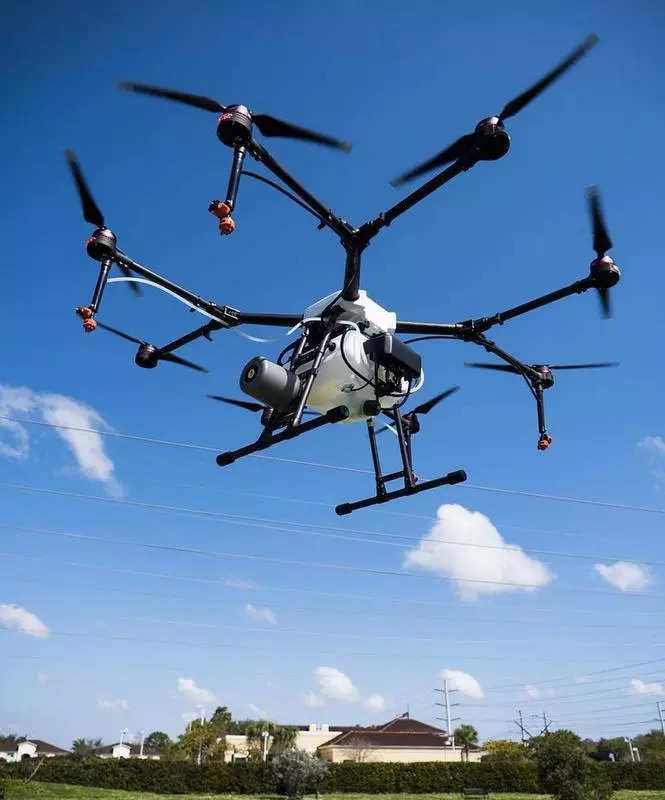Cuttack Deploys Drones for Mosquito Control to Tackle Rising Infestation | Bhubaneswar News

Cuttack: The Cuttack Municipal Corporation (CMC) will deploy drones to spray chemicals to kill mosquitoes from next week, officials said.
The decision to introduce drones comes in the wake of rising complaints from residents about the surge in mosquitoes, particularly post-monsoon. Traditional methods like fogging and manual spraying have proven inadequate in addressing the issue comprehensively.
A Kolkata-based agency has been roped in for the operation. Two advanced drones, specifically designed for the purpose, will be deployed.
“These drones will be utilised to spray larvicides in hard-to-reach areas such as stagnant water bodies, drainage channels and marshy lands, which are breeding grounds for mosquitoes,” said Anam Patra, CMC commissioner.
“As Cuttack is a 1,000-year-old city, using drones allows us to cover inaccessible areas more effectively, reducing mosquito breeding at its source,” he added.
“We are confident that this will significantly bring down the mosquito population and related health risks,” said Patra.
A technical team conducted a survey of the areas troubled by the alarming rise in mosquitoes. The team identified mosquito breeding spots, including water bodies, plots, bushy areas and narrow lanes. Most of the places are inaccessible manually.
Drones will operate under the supervision of health and sanitation teams of CMC, ensuring targeted application of larvicides.
“Several inaccessible areas in the millennium city have been identified. More than 200 private water bodies exist, which are not accessible properly and not cleaned regularly. Drones will have a major impact on these areas. We will spray the larvicides across the 59 wards,” said Satyabrata Mohapatra, CMC health officer.
“The mosquito density index has reached 69 in the city, which is a bit high. It is calculated by the average number of mosquito bites on 10 people per hour. Use of drones will continue till the density of mosquitoes is reduced to less than 40, which is considered normal,” said Mohapatra.
CMC officials have urged citizens to cooperate and maintain cleanliness in their localities to support the efforts.
The decision to introduce drones comes in the wake of rising complaints from residents about the surge in mosquitoes, particularly post-monsoon. Traditional methods like fogging and manual spraying have proven inadequate in addressing the issue comprehensively.
A Kolkata-based agency has been roped in for the operation. Two advanced drones, specifically designed for the purpose, will be deployed.
“These drones will be utilised to spray larvicides in hard-to-reach areas such as stagnant water bodies, drainage channels and marshy lands, which are breeding grounds for mosquitoes,” said Anam Patra, CMC commissioner.
“As Cuttack is a 1,000-year-old city, using drones allows us to cover inaccessible areas more effectively, reducing mosquito breeding at its source,” he added.
“We are confident that this will significantly bring down the mosquito population and related health risks,” said Patra.
A technical team conducted a survey of the areas troubled by the alarming rise in mosquitoes. The team identified mosquito breeding spots, including water bodies, plots, bushy areas and narrow lanes. Most of the places are inaccessible manually.
Drones will operate under the supervision of health and sanitation teams of CMC, ensuring targeted application of larvicides.
“Several inaccessible areas in the millennium city have been identified. More than 200 private water bodies exist, which are not accessible properly and not cleaned regularly. Drones will have a major impact on these areas. We will spray the larvicides across the 59 wards,” said Satyabrata Mohapatra, CMC health officer.
“The mosquito density index has reached 69 in the city, which is a bit high. It is calculated by the average number of mosquito bites on 10 people per hour. Use of drones will continue till the density of mosquitoes is reduced to less than 40, which is considered normal,” said Mohapatra.
CMC officials have urged citizens to cooperate and maintain cleanliness in their localities to support the efforts.
















